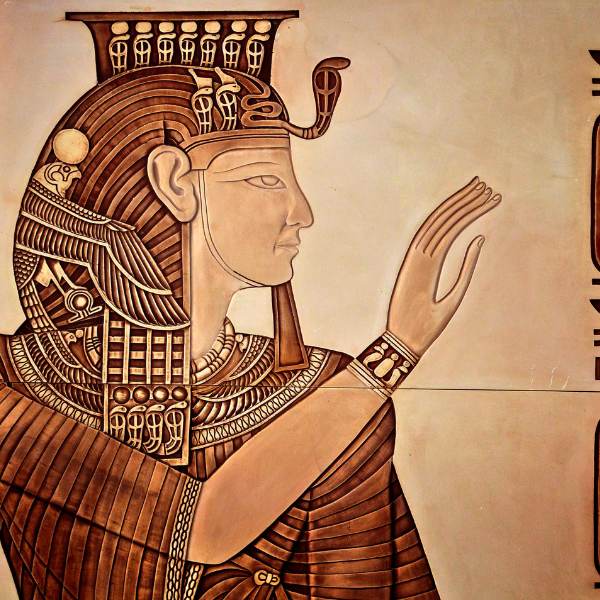Cleopatra is one of the most fascinating figures in history. Known for her intelligence, charisma, and leadership, she left an indelible mark on the ancient world. But why is Cleopatra such an important leader in history? Her story goes beyond her reign in ancient Egypt. Cleopatra’s influence on history extends to politics, culture, and diplomacy.
Her legacy as a leader who combined beauty and intellect has inspired generations. This article explores seven key reasons why Cleopatra remains an iconic leader in history.
Why Is Cleopatra Such an Important Leader in History?

Cleopatra’s leadership traits and her ability to adapt to challenging situations make her an enduring symbol of power and grace. Below, we delve into the reasons behind her iconic status and why she is remembered as one of history’s greatest leaders.
1. A Ruler of Ancient Egypt with Exceptional Intelligence
Cleopatra’s influence on history began with her rule over Egypt. Born into the Ptolemaic dynasty, Cleopatra was well-educated and spoke multiple languages, including Greek, Egyptian, and Latin. This linguistic ability helped her communicate with foreign leaders and maintain Egypt’s sovereignty.
- Exceptional Education: Cleopatra studied subjects like philosophy, mathematics, and astronomy, making her one of the most educated rulers of her time.
- Strategic Leadership: She used her intelligence to implement policies that stabilized Egypt’s economy and strengthened its military.
Cleopatra’s ability to blend knowledge with leadership traits allowed her to maintain power in a male-dominated world.
2. Diplomatic Alliances with Powerful Empires
One of Cleopatra’s most remarkable achievements was her ability to form alliances with powerful Roman leaders like Julius Caesar and Mark Antony. These alliances were crucial for maintaining Egypt’s independence.
- Alliance with Julius Caesar: Cleopatra partnered with Caesar to solidify her position as queen. Their alliance brought stability to Egypt and increased its influence in the Roman Empire.
- Mark Antony Partnership: Her relationship with Antony was both personal and political, as they worked together to protect their territories from Roman threats.
These alliances demonstrate Cleopatra’s diplomatic skills and her understanding of global politics.
3. Master of Propaganda and Public Image
Cleopatra understood the power of public image and propaganda. She presented herself as the reincarnation of the goddess Isis, which strengthened her connection with the Egyptian people.
- Religious Symbolism: By associating herself with Isis, Cleopatra gained the loyalty of her subjects and reinforced her divine authority.
- Cultural Integration: She embraced Egyptian traditions while maintaining her Greek heritage, appealing to both cultures.
Her ability to control her narrative helped her maintain power and influence.
4. A Strong Advocate for Women in Leadership
Cleopatra is often remembered as one of the greatest women in history for breaking barriers in a male-dominated society. She proved that women could lead effectively and make significant contributions.
- Role Model for Women: Cleopatra’s reign challenged traditional gender roles and inspired future generations of women leaders.
- Empowerment Through Education: Her intellectual achievements demonstrated that women could excel in fields traditionally dominated by men.
Cleopatra’s legacy as a female leader continues to inspire discussions about gender equality and women’s empowerment.
5. Economic Reforms That Strengthened Egypt
Cleopatra’s leadership traits included a deep understanding of economics. She implemented policies that revitalized Egypt’s economy and ensured its prosperity.
- Agricultural Development: Cleopatra invested in agriculture, increasing food production and ensuring stability during her reign.
- Trade Expansion: She established trade routes with neighboring regions, boosting Egypt’s economy and creating new opportunities for her people.
Her economic reforms highlight her vision and commitment to her country’s welfare.
6. A Resilient Leader During Turbulent Times
Cleopatra ruled during a period of political instability, yet she managed to navigate these challenges with resilience and determination.
- Overcoming Adversity: Despite facing internal conflicts and external threats, Cleopatra maintained her position as queen.
- Strategic Warfare: She used her knowledge of military strategy to protect Egypt from invasions and maintain its independence.
Cleopatra’s resilience in the face of adversity solidifies her reputation as a strong and capable leader.

7. An Enduring Legacy That Transcends Time
Why is Cleopatra remembered today? Her story has been immortalized in literature, art, and popular culture. From Shakespeare’s plays to modern films, Cleopatra’s life continues to captivate audiences worldwide.
- Cultural Impact: Cleopatra’s influence on history extends beyond her reign, shaping how leaders are perceived in different cultures.
- Inspiration for Future Generations: Her legacy serves as a reminder of the power of intelligence, charisma, and determination.
Cleopatra’s enduring legacy makes her one of the most iconic leaders in history.
Key Achievements of Cleopatra
| Achievement | Description |
|---|---|
| Strategic Alliances | Formed partnerships with Julius Caesar and Mark Antony |
| Economic Reforms | Improved agriculture and expanded trade routes |
| Cultural Integration | Embraced Egyptian traditions while maintaining Greek heritage |
| Religious Symbolism | Portrayed herself as the goddess Isis |
| Resilience During Turmoil | Maintained power despite political instability |
Related Article: 7 Greatest Women of All Time: Icons of Power and Grace
Conclusion
Cleopatra’s story is a testament to the power of intelligence, resilience, and leadership. Why is Cleopatra such an important leader in history? She redefined what it means to lead, blending diplomacy, strategy, and charisma to leave an indelible mark on the world.
Her ability to navigate challenges and inspire loyalty has made her a symbol of strength and determination. Cleopatra’s legacy continues to inspire leaders and historians, proving that true greatness transcends time.
FAQ’s
Why is Cleopatra remembered as a great leader?
Cleopatra is remembered for her intelligence, diplomatic skills, and economic reforms. She maintained Egypt’s independence through strategic alliances and implemented policies that strengthened the country’s economy.
What leadership traits made Cleopatra successful?
Cleopatra’s leadership traits included resilience, intelligence, and adaptability. She used her education and charisma to navigate political challenges and maintain power.
How did Cleopatra influence ancient Egypt?
Cleopatra influenced ancient Egypt by embracing its culture and traditions while implementing reforms that improved agriculture and trade. Her leadership helped stabilize the country during turbulent times.
Why is Cleopatra’s legacy still relevant today?
Cleopatra’s legacy is relevant because it highlights the importance of intelligence, diplomacy, and determination. Her story inspires discussions about leadership and gender equality.
What role did Cleopatra play in ancient politics?
Cleopatra played a significant role in ancient politics by forming alliances with powerful Roman leaders like Julius Caesar and Mark Antony. These alliances helped protect Egypt’s sovereignty and influence global affairs.





